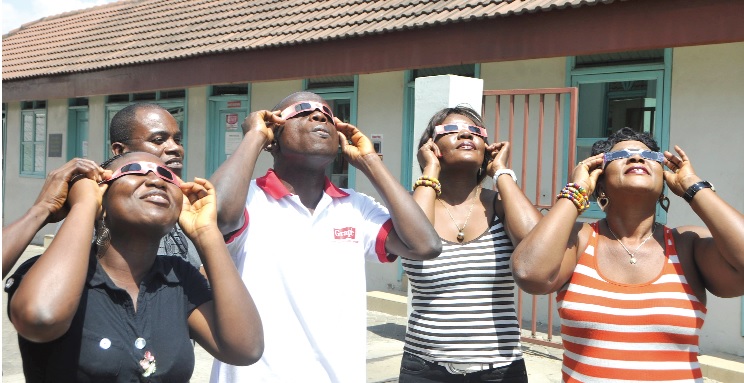Parts of North Africa, the Middle East and southern Europe are expected to witness a rare total solar eclipse on Monday, August 2, 2027, with some locations experiencing total darkness for up to six minutes.
The eclipse will pass through a narrow corridor measuring between 258 and 275 kilometres wide.
It will begin over the Atlantic Ocean and move across southern Spain and Gibraltar, through Morocco, Algeria, Tunisia, Libya and Egypt, and continue into Saudi Arabia, Yemen and Somalia. The point of maximum darkness will be near Luxor in Egypt, where the Moon is expected to block out the Sun for six minutes and 22 seconds.
Although Ghana will not experience total darkness, residents across the country will be able to observe a partial eclipse. In Akuse, for instance, the event will start at 08:39 GMT, peak at 09:05 GMT with around 4.8 per cent obscuration, and end at 09:31 GMT.
This rare astronomical alignment is made possible because the Earth will be at aphelion, its farthest point from the Sun, while the Moon will be at perigee, its closest point to Earth.
This makes the Moon appear slightly larger than usual and capable of covering the Sun completely for longer than typical eclipses.
Astronomers note that the August eclipse will be the longest total solar eclipse visible from land between the years 1991 and 2114. It is expected to draw large crowds in areas along the path of totality.
In Ghana, although the eclipse will be partial, the event is still expected to attract attention from sky-watchers. Experts have advised the public to use certified solar filters to view the eclipse safely. Looking at the Sun without proper protection, even during a partial eclipse, can result in permanent eye damage.
The partial eclipse will be visible across Ghana between 08:40 and 09:30 GMT. Residents in Accra, Kumasi, Tamale and other towns will notice the Moon covering a small portion of the Sun.
While it will not be as dramatic as the total eclipse expected in Egypt and other countries, it remains a rare and memorable phenomenon for local observers.
Viewers are advised not to use regular sunglasses or improvised methods, which do not provide adequate protection. Public science institutions and astronomy clubs in Ghana are expected to organise safe viewing sessions and public education activities to help residents observe the eclipse safely.

